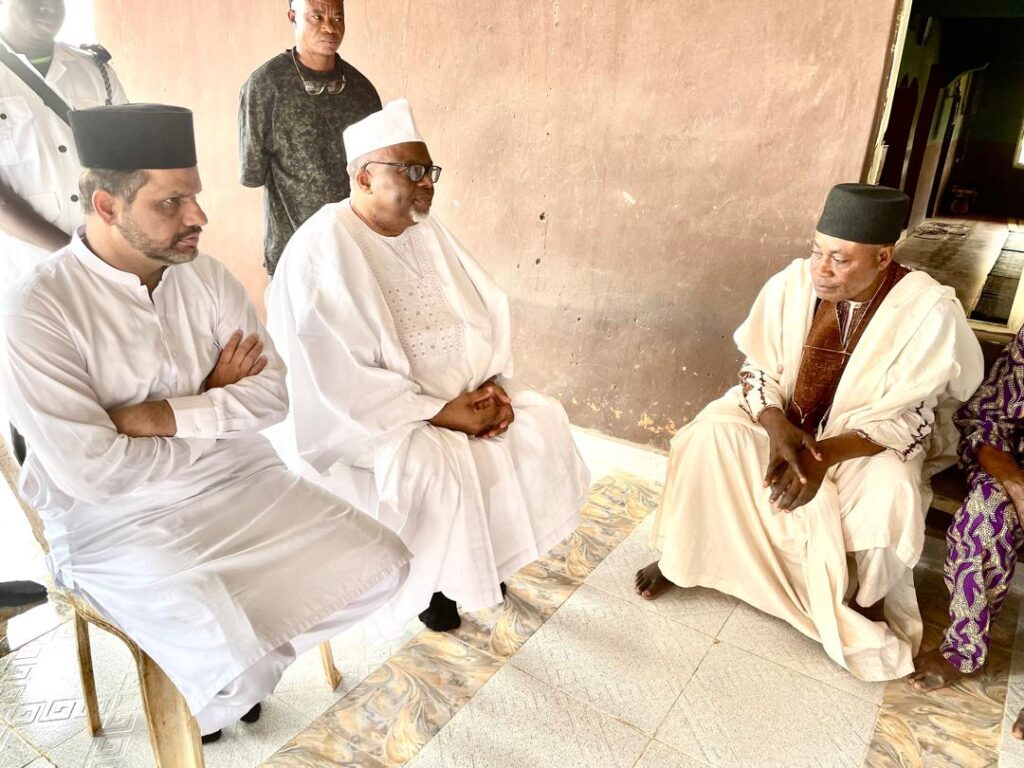Grand Chief Imam of Ogbomoso Land Hails Ahmadiyya Muslim Community as ‘Partners in Progress’
The Grand Chief Imam of Ogbomoso Land, Alh. (Dr.) Imam Yunus Teliat Olushina (Ayilara II) has described the Ahmadiyya Muslim Community as a loyal, faithful, and peace-loving Muslim organisation whose peaceful coexistence and preachings exemplifies the basic tenets of Islam. Imam Ayilara made the remarks during the courtesy visit of the Amir (National Head) of Ahmadiyya Muslim Jama’at of Nigeria Alhaj. (Barr.) Alatoye Folorunso Azeez on Friday 7th November 2025 in Ogbomoso, Oyo State. The Grand Chief Imam mentioned that he was not alien to Jama’at activities in the country and disclosed his relationships with some notable members within the Jama’at. “Ahmadiyya Muslim Jama’at is well known to me because I am very close to some individuals within the Jama’at. The former Principal of Jamia Ahmadiyya Nigeria Maulvi Azeem Ahmad was my very close friend till now. We both had our Master’s degrees at the University of Ibadan. He was a loving and admirable individual. Another person is Alh. Ayelagbe Jabar, the current National General Secretary, AMJN. We were previously together at the Nigeria Securities and Civil Defence Corps (NSCDC). He was a pious individual as well.” “Ahmadiyya Muslim Community is indeed one of the first sets of Muslim organizations that welcomed me when I became the Chief Imam and their loyalty has remained intact as of this moment. My relationship with the Jama’at has been very cordial and peaceful. We are partners in progress,” he submitted. Earlier in his speech, the Respected Amir appreciated the Grand Chief Imam for granting the courtesy visit request at the shortest notice. He appreciated the efforts of the Grand Chief Imam in sensitizing the public on the proper teachings of Islam and urged him to continue to use his good office to engage the government and relevant stakeholders on challenges facing the masses while advocating continuous prayers for peaceful co-existence in the country. The Amir prayed for hitch-free reign of the Grand Chief Imam of Ogbomoso Land and pledged continuous and unflinching support of the Ahmadiyya Muslim Community. Other members of Amir’s entourage are: the Missionary in Incharge Maulvi Adnan Tahir; National General Secretary Alh. Ayelagbe Jabar, the Sadr (President) Elders Forum AMJN, Alh. Dauda Raji; and National Jaidad (Property) Secretary Builder Bashirdeen Towolawi.











